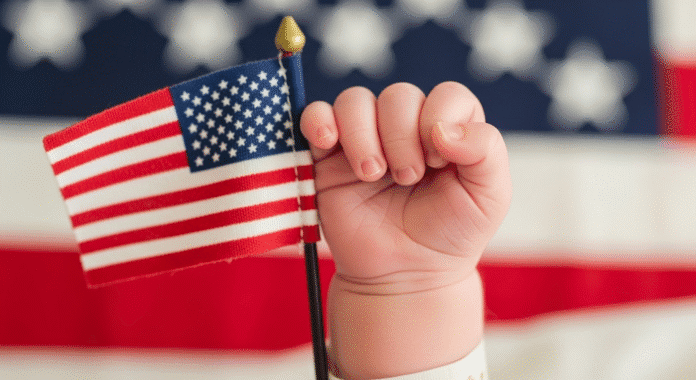Appeals Court Blocks Trump’s Birthright Citizenship Ban: What It Means for America
Federal judges reaffirm the Fourteenth Amendment, dealing a major blow to Trump’s immigration agenda and sparking a new chapter in the fight over who gets to be an American.
The recent appeals court ruling that blocked former President Trump’s executive order to end birthright citizenship has become a defining moment in the ongoing debate over American identity and immigration policy. By upholding the lower court’s decision, the judiciary has safeguarded the constitutional right of nearly every child born on U.S. soil. This decision strikes at the heart of Trump’s immigration agenda and sets the stage for the next phase of a contentious legal and political battle.
What Did the Court Decide on Birthright Citizenship?
The U.S. Court of Appeals for the Ninth Circuit overturned Trump’s executive order, which sought to deny U.S. citizenship to children born in the United States to undocumented immigrants or non-citizen parents. The court ruled that the executive order violated the Fourteenth Amendment—the cornerstone of American citizenship law—by improperly narrowing the protection granted by the Citizenship Clause.
Judge Ronald Gould, in the majority opinion, stated,
“The district court correctly concluded that the Executive Order’s proposed interpretation, denying citizenship to many persons born in the United States, is unconstitutional. We fully agree.”
This decision is firmly rooted in the landmark Supreme Court ruling United States v. Wong Kim Ark (1898), which affirmed that all persons born on U.S. soil are entitled to citizenship, save for very limited exceptions such as children of foreign diplomats.
Trump’s Arguments: Redefining Constitutional Boundaries
Trump’s administration put forward a reinterpretation of the Fourteenth Amendment, arguing that its phrase “subject to the jurisdiction thereof” should exclude children born to unauthorized immigrants or visitors on temporary visas. The claim was that the amendment was originally intended to secure the rights of formerly enslaved individuals and their descendants—not to extend citizenship unconditionally to every child born on American soil today.
Furthermore, the administration insisted that the president possesses broad executive authority to enforce immigration policy changes, including reinterpretations of constitutional provisions. Their policy rationale was twofold. First, they argued that granting citizenship to children of undocumented immigrants creates a “magnet” effect, encouraging illegal entry and so-called birth tourism. Second, they maintained that limiting citizenship rights would preserve the “value and meaning” of American citizenship.
However, legal scholars widely criticized this approach. They contended that altering constitutional rights through executive order not only disregards historical interpretation but also exceeds presidential authority. The court’s decision underscores this point: changing a core constitutional provision requires a constitutional amendment or legislative action, not executive fiat.
Defending the Constitutional Promise: Opponents of the Policy
Opponents of Trump’s order—ranging from civil rights organizations to several state governments—firmly defended the long-established interpretation of the Citizenship Clause. Their arguments were multifaceted:
Legal experts noted that the Fourteenth Amendment’s language is clear and unequivocal, as evidenced by over a century of judicial precedent. The historic decision in Wong Kim Ark has formed the legal backbone of America’s commitment to birthright citizenship. Critics argued that redefining this principle to exclude particular groups of children would create a constitutional anomaly, leaving many newborns stateless.
In addition to the legal arguments, the practical implications of the policy raised serious concerns. Ending birthright citizenship would result in administrative chaos, potentially creating millions of stateless individuals, disrupting family unity, and undermining the promise of equal protection under the law. Advocacy groups emphasized that citizenship is a fundamental right, and any attempt to curtail it through executive action is both dangerous and divisive.
Civil rights organizations, including the American Civil Liberties Union (ACLU), stated,
“This ruling reaffirms that no president can unilaterally strip away constitutional rights. We will continue to fight to protect the rights of all children born in the U.S.”
Such statements underscore a broad-based resistance across the political and legal spectrum against attempts to redefine birthright citizenship through executive decree.
Impact on Trump’s Broader Immigration Agenda
This ruling is not an isolated legal victory—it has broader implications for Trump’s immigration strategy. The appeals court’s decision is a setback for a series of measures aimed at reforming immigration via executive orders. Trump’s agenda has long relied on reshaping immigration policy without the need for legislative approval, encompassing other contentious policies such as travel bans, adjustments to asylum practices, and attempts to curtail Temporary Protected Status for certain immigrant groups.
Policy Momentum and Messaging
By rejecting the executive order, the court has simultaneously stymied policy momentum and disrupted a key element of the political messaging that has defined Trump’s approach to immigration. On one side, supporters of Trump’s policies assert that his actions were necessary to tighten border security and enforce immigration laws more stringently. On the other, critics view this decision as a vital safeguard of constitutional protections, preventing the erosion of rights that have been long upheld by American legal tradition.
Senator Lindsey Graham, a Trump ally, declared,
“The Constitution was never meant to grant automatic citizenship to children of illegal immigrants. This fight is far from over.”
Conversely, President Joe Biden praised the ruling as,
“a victory for equality and justice,”
emphasizing that birthright citizenship is essential to the American promise of inclusion and fairness.
Future Legal and Political Steps
The battle is far from over. The contested nature of this ruling means that the case is likely to advance to the Supreme Court, where a conservative majority could ultimately decide on the limits of executive power over immigration. If the Supreme Court upholds the appeals court’s decision, it will cement the protection of birthright citizenship as enshrined in the Constitution, thereby preventing future unilateral attempts to redefine it.
Other potential steps include:
• Legislative action by Congress to address immigration reform in a comprehensive manner. Although political polarization makes bipartisan consent challenging, such measures could provide permanent clarity on the Citizenship Clause’s application.
• Further litigation from both sides. While supporters of Trump’s policy may continue to argue the need for executive flexibility, opponents will persist in seeking judicial confirmation that the Constitution remains the supreme guide in these matters.
• State-level litigation where states view the enforcement of a reinterpreted Citizenship Clause as a direct threat to administrative consistency and the rights of their residents.
The outcome of these legal battles will have a profound impact on U.S. immigration law and the balance of power between branches of government, underscoring the enduring tension between executive ambition and constitutional limits.
Reactions from Across the Spectrum
The ruling has provoked a range of responses from legal experts, politicians, and advocacy groups alike. Legal opinion has been largely supportive of the decision to uphold long-standing constitutional protections. While some judges dissented, arguing that the constitutional question deserved a broader review, the majority underscored the importance of judicial restraint in the face of executive overreach.
Political figures have also weighed in forcefully. President Joe Biden lauded the decision, associating it with a commitment to human rights and equality. In contrast, figures like Senator Lindsey Graham continue to defend the merits of stricter immigration controls, even as they acknowledge the present ruling as a temporary setback.
Advocacy groups, too, have mobilized in response. Protests outside federal courthouses and the Supreme Court have made clear the passion behind the debate, with demonstrators holding placards proclaiming, “Citizenship is a right, not a privilege.” Remarks from community leaders and legal activists have reinforced the narrative that defending birthright citizenship is crucial to preserving America’s foundational values.
What Lies Ahead: The Supreme Court and the Future of Immigration
All eyes now turn to the Supreme Court. The case presents a pivotal moment for determining whether executive overreach can be checked by constitutional safeguards. As the legal process unfolds, it is likely the Supreme Court will be called upon to reconcile the competing interpretations of the Fourteenth Amendment and to weigh in on the broader question of executive power in immigration matters.
A Supreme Court decision upholding the appeals court’s ruling would set a firm precedent against unilateral changes to constitutional rights. If, however, the ruling is reversed, it could open the door for future administrations to redefine American citizenship in ways that might fundamentally alter the nation’s legal landscape.
Conclusion: Defending the Promise of America
The appeals court’s decision to block Trump’s bid to end birthright citizenship reaffirms that the promise of America is not subject to political whim. By upholding the guaranteed rights enshrined in the Constitution, the court has taken a stand to protect the identity and values that define what it means to be American.
This ruling challenges all who advocate for far-reaching immigration reforms without due regard for constitutional boundaries. It is a call for civic engagement and for all Americans to remain vigilant in protecting the rights and dignity of those born in the United States.
Call to Action:
Stay informed and get involved. Reach out to your representatives and support organizations that champion the rule of law. Help ensure that our nation’s core ideals continue to guide us in an ever-changing world.




